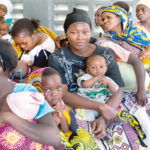Professor Arulogun, in an inaugural lecture she delivered at the University of Ibadan, entitled “The power of the Hybrid” said hoarseness, a change in the normal speech pitch, is speech defect and one of the symptoms of various head and neck cancers.
According to her, a study of 74 patients with head and neck cancers at the University College Hospital, only found 9.5 per cent of them without any speech defect as a complaint.
He said, “the head and neck is an anatomically and neurologically complex region and it is not surprising that pain arising from this part of the body is often misunderstood, misdiagnosed and mistreated.”
While there are many speech and language disorders, the don said these disorders are not due to tongue tie, as many mothers still perceive it.
On HIV, the don said despite existing array of educational interventions, gaps in knowledge on HIV still exist aside from the need to shift towards a more community-based approach on prevention of mother-to-child transmission (PMTCT) of HIV.
The don also canvassed a more deaf-sensitive healthcare service, saying persons with a hearing problem are always faced with such barriers as the communication problem and not finding anyone to accompany hearing-impaired girls to the health facility.
She declared: “Deaf persons suggested that providers be educated about the medical needs, assistance needs and communication of the deaf. These underscore a need for a paradigm shift in national standards related to language access to healthcare.
“The Federal Ministry of Health need to develop national standards related to language access to healthcare to the deaf. They should include support for development and provision of training for interpreters to work in a number of roles; development of standards for providing training in working with an interpreter.”
Professor Arulogun, however, declared that health-promoting behaviour both at the individual and community levels can only be achieved in the presence of a tripartite relationship between health system, development partners and community members using the policymakers as the medium for the actualisation of the process.






